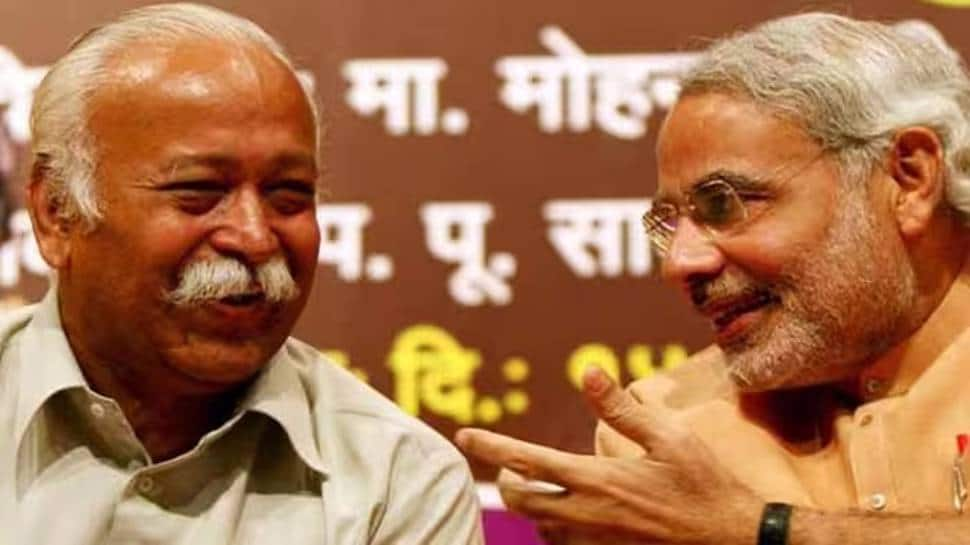The alliance between the Bharatiya Janata Party (BJP) and the Rashtriya Swayamsevak Sangh (RSS) has long been heralded as one of the most strategic and ideologically driven partnerships. However, the recent Lok Sabha (LS) elections of 2024 have exposed cracks in this seemingly unbreakable bond, highlighting the consequences of political arrogance and neglect. The BJP, often perceived as a political juggernaut under Prime Minister Narendra Modi’s leadership, faced a surprising setback by failing to secure a majority. This unforeseen turn of events has sparked discussions about the reasons behind this electoral misfortune, with many pointing fingers at the strained relationship between the BJP and its ideological guru, the RSS.
The Ideological Backbone: RSS’s Role in BJP’s Rise
The RSS has been the bedrock of BJP’s ideological and organizational structure. Founded in 1925, the RSS has cultivated a vast network of volunteers and a disciplined cadre that has significantly contributed to BJP’s political strategies and grassroots mobilization. The symbiotic relationship between the two has often been credited for BJP’s electoral successes, particularly in the 2014 and 2019 general elections. The RSS’s emphasis on nationalism, cultural identity, and social harmony resonated with a substantial segment of the Indian populace, bolstering BJP’s appeal.
A Fateful Misstep: BJP’s Growing Hubris
Despite the historical camaraderie, the BJP’s recent actions suggest a growing sense of hubris. Reports indicate that during the 2024 election campaign, the BJP distanced itself from the RSS, seemingly confident in its ability to secure victory without its traditional ally’s support. BJP President J.P. Nadda’s statement, asserting that the party no longer needed the RSS as it had grown self-sufficient, was a significant turning point. This declaration not only alienated the RSS but also sent ripples of discontent through the ranks of dedicated swayamsevaks who felt disregarded.
The Ripple Effect: Impact on Grassroots Mobilization
The RSS’s reaction to BJP’s perceived arrogance was palpable. Traditionally, RSS volunteers have been instrumental in mobilizing voters, organizing rallies, and disseminating the party’s message at the grassroots level. However, the 2024 elections saw a noticeable decline in their active participation. In the initial phases of the election, the RSS refrained from holding meetings or issuing directives to support BJP candidates, leading to a lackluster voter turnout. This detachment significantly undermined BJP’s campaign, as the party struggled to galvanize its base without the RSS’s robust network.
Electoral Consequences: A Reality Check for BJP
The election results were a stark reminder of the perils of overconfidence. The BJP, which had ambitiously aimed for over 400 seats, managed to secure only 240, falling short of the majority mark by 32 seats. This outcome forced the BJP to seek coalition partners to form the government, a scenario it had hoped to avoid. Political analysts argue that this setback was a direct consequence of the BJP’s decision to sideline the RSS, highlighting the indispensability of their ideological ally.
RSS’s Perspective: A Critique from Within
The RSS, through its mouthpiece “Organiser,” did not mince words in its critique of the BJP’s electoral strategy. An article in the magazine described the election results as a reality check for the “overconfident” BJP workers and leaders. It highlighted the disconnect between the party’s leadership and the grassroots, emphasizing that mere reliance on Prime Minister Modi’s charisma was insufficient. The article also pointed out the neglect of older, dedicated workers in favor of new-age, social media-savvy activists, which alienated a significant portion of the party’s traditional support base.
The Importance of Unity: Lessons for the Future
The fallout from the 2024 elections serves as a crucial lesson for the BJP. The symbiotic relationship between the party and the RSS has been the cornerstone of their political strategy. Ignoring the RSS’s contributions and sidelining its volunteers proved to be a costly mistake. Moving forward, it is imperative for the BJP to rebuild its relationship with the RSS, acknowledging its role not just as an ideological mentor but as a critical component of its electoral machinery.

